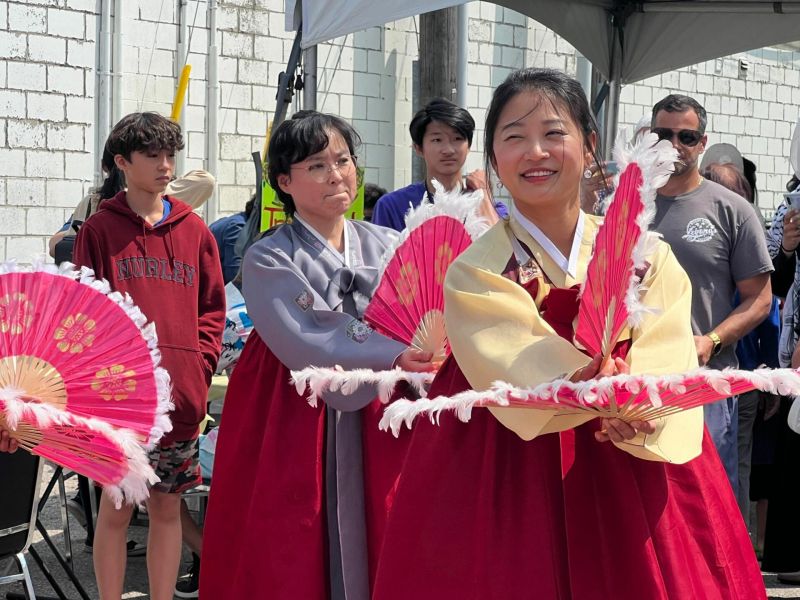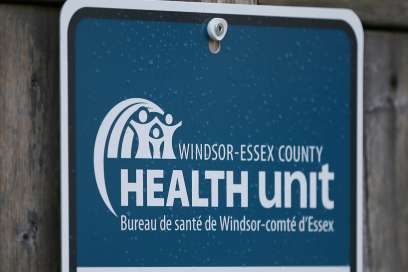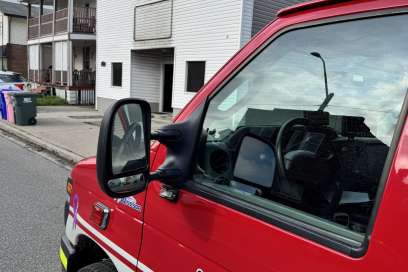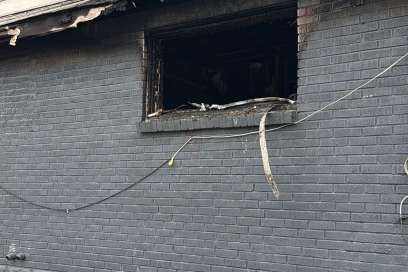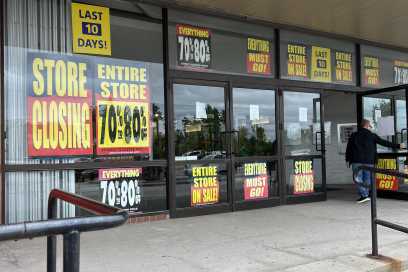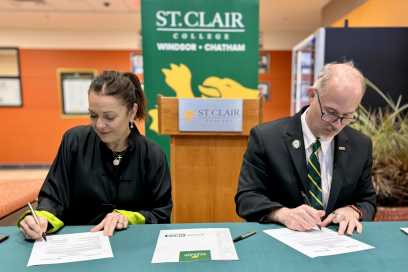UWindsor President Speaks Out On CUPE Strike
Monday September 23rd, 2013, 11:24am
Hello time traveller!!
This article is 4266 days old.
The information listed below is likely outdated and has been preserved for archival purposes.

In the midst of a 2-week-old strike, the President of the University of Windsor has issued a letter to the campus community stressing “I want our employees back to work”.
The full text of the letter is below:
To the Campus Community,
I am writing in regards to the CUPE 1393 work stoppage. I know and have worked alongside many of those on the picket line, and have celebrated successes and milestones with them. I want our employees back to work. The University needs them back to work. There are significant reasons why this has not yet happened.
There are two central issues in our bargaining with CUPE 1393. They are issues that are unique to Local 1393. The first is the job evaluation process. The second is bumping.
Unlike the job evaluation process in other bargaining groups, with Local 1393 it has become financially unsustainable. It is a complex issue for those unfamiliar with it, but it is essentially as follows. For many years, the CUPE 1393 collective agreement has allowed an employee to have his or her job re-evaluated annually upon request. The evaluation occurs through the Joint Job Evaluation Committee described in the collective agreement. Over the past three years alone, of 61 CUPE 1393 jobs re-evaluated, the average pay increase following re- evaluation has been $10,790, an average of 17.3%. This has created a permanent base budget increase of $561,064 per year beyond the negotiated collective agreement scale increases. Under the existing language in the agreement, anyone whose job is re-evaluated gets retroactive pay back to the date they requested the evaluation. Over the same three years, the University has paid $1,023,342 million in lump sum back payments to these same 61 people, an average of $16,770 per employee.
These are good jobs in our community. The work our 1393 employees do is important. Nevertheless, these large increases are in addition to what are already very competitive compensation packages for Ontario and for our community, particularly when the comprehensive benefits the University provides are added. We are not laying blame on either side for the problems with the job evaluation system, but we do know that the current system is unworkable and cannot be sustained. CUPE 1393 does not want to accept new proposed language that would provide future Joint Job Evaluation Committees a reasonable framework to use.
The rumours spreading that the University wants to change the job evaluation system so that we can cut existing wages are false. We have never asked for anyone’s pay to be reduced. We want language in the collective agreement that will define the process of preparing and approving job descriptions, provide greater clarity around the different criteria that go into the evaluation, and allow for appropriate oversight by the employer.
We fully understand that CUPE 1393 employees are disappointed by what we are asking, because it does mean that changes to the future job evaluation process might not give them the income bumps that they had hoped for. There are very few people in any job, anywhere, who would not like to see their salaries and career earnings go up. The position of CUPE 1393 that they will accept no, or only minimal, scale increase over the next three years is not surprising, since the job evaluation process that they currently have is proving to be far more lucrative. Many people would forego a one percent scale increase on the chance they could get an average 17.3% pay raise through job evaluation.
Suggestions that some creative new solutions exist to keep the current compensation escalation in place, when almost 80% of the University operating budget is wages, salaries and benefits, are not founded in reality. People across the University have worked very hard and creatively to deal with years of budget realignment, and that challenge is far from over. The fiscal challenges faced by our university are not a myth. They have been described throughout my 19 updates to the community, all available on my web site (http://www1.uwindsor.ca/president/).
My last update (#19) addresses very significant continuing challenges for our operating budget, including a projected $4.8 million shortfall for 2014/15.
The second major issue is bumping. The CUPE 1393 collective bargaining agreement allows for what is essentially unlimited bumping opportunities. Their members have been seeking to maintain the right, that has long existed in their collective agreement, to unlimited bumping if their position is closed due to budget constraints, restructuring, or any other reason except for outsourcing. Our research shows that the bumping provisions in the current 1393 collective agreement are virtually non-existent in collective agreements in Canada, much less in other staff collective agreements at the University of Windsor. They create multiple logjams, uncertainty for many other professional staff when a position is closed, and an inability of the University to manage operational realignments in respect of budget challenges. The University entered bargaining with a desire to see bumping rights restricted to three bumps. In response to the concerns of the CUPE 1393 bargaining team, we had offered to increased that to four.
Collective bargaining with CUPE 1393 has not consisted simply of unilateral demands by the University. The bargaining process has been respectful, and the bargaining teams accomplished a great deal, much of it not in the public discourse. We have never demanded wage rollbacks for CUPE 1393 jobs. We have assured CUPE 1393 that we will maintain the current language that protects members from losing their job due to outsourcing.
I would not be writing openly to all of you if the University’s position was anything other than what I have described above.
To our students, I have received and acknowledge your many emails. Where appropriate, questions are being directed to Deans’ offices or to Student Services offices. On the more general matters regarding your frustrations with reduced services, it is the right of a union to go on strike during labour negotiations. CUPE 1393 unilaterally chose the start of the school year to put pressure on the employer. In attempting to find solutions to end the strike, we must balance the short term needs with the long term responsibilities. I assure you that we are doing all we can to minimize the impact of the strike on you, and the concerns and frustrations of you and your families are taken very seriously and very much to heart.
To our faculty and staff, thank you for your patience and for the exceptional efforts that I know are being made across campus in support of our students.
Sincerely,
Alan Wildeman
President and Vice-Chancellor
No bargaining dates are currently set between CUPE 1393 and University administration.


